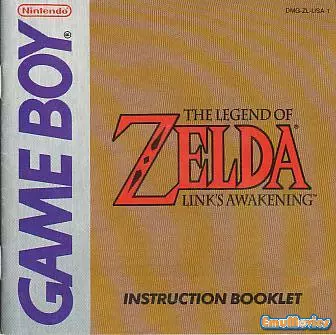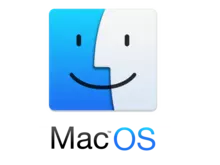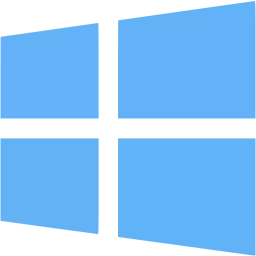
Download Game
Legend of Zelda, The - Link's Awakening (V1.1)
File information
Legend of Zelda, The - Link's Awakening (U) (V1.1) [T+Spa1.0_DJTraducciones].zip 291.13 KB Gameboy Adventure Nintendo Co., Ltd. / Nintendo EAD 1993 1 Controller Cartridge 12/03/2018 03/05/2024 24 times Direct Download Play in browser.webp)
About game
Game Mechanics
GeneralLink's Awakening is an action-adventure game focused on exploration and combat, like most games in the series The Legend of Zelda unfolding in a medieval-fantastic universe. The game takes almost identically the game system like the graphics of the previous episode A Link to the Past. The gameplay However, there are many innovations and a unique gaming experience. The largest part of the action takes place from a perspective to top. However, the game offers game sequences in horizontal scrolling similar to those of Super Mario Bros., especially in dungeons or in some mini-games, secret or underground passages. These passages are populated by enemies from the world of the famous plumber and also have large pipes inhabited by carnivorous plants. The map of the world, like the dungeons and caves, are made on screen thanks to a technique called flip-screen (or flick-screen) : the map is divided into many rectangles each corresponding to the exact size of the screen. The game displays a single fixed screen, in which the player can move the character freely. When the character reaches any of the sides of the screen, a transition effect makes the screen disappear and displays the adjacent part of the card, offering new graphics, places and enemies.
If Link's Awakening is very strongly inspired by its predecessor, the game can only use the few buttons of the Game Boy, two action buttons (A and B) and buttons Start and Select. The game has short film sequences. The player also has a world map showing itself as the character walks through it. The layout of the rooms of each dungeon, as in the first set of the series entitled The Legend of Zelda, represents a particular form, for example a mask.
Resuming the concept ofA Link to the PastThe player directs Link that spurs the island of Cocolint and fights many enemies. It must solve many puzzles that allow it to exchange items with non-player characters in order to advance the characteristics of its character, and allow it to access dungeons that become increasingly large and increasingly difficult. The understanding of dialogues with the inhabitants of the island and their expectations is an essential aspect to understand their needs, exchange objects and advance in the quest. The game thus alternates phases of research and reflection allowing these exchanges of objects and dungeons where action, research and reflection are necessary. In each of the eight dungeons, Link aims to recover objects, musical instruments by batting the boss, which will allow it to reach the final battle. Each dungeon also includes an object, or weapon to advance Link attributes, but also to advance in the main quest. As in previous opus, labyrinthic dungeons contain puzzles that the player must resolve to find the way to boss, the large key that allows to open the last door, many small keys, the compass indicating the placement of the boss, and the map that is the dungeon plan.
When Link eliminates boss, he also gets a life ur, which increases his life capacity. The player can also increase these abilities by recovering quarters of cranes scattered on the island, which constitutes a crane as soon as the player finds four. When Link is touched by an opponent, touched by a trap, or falls into a hole, he loses one or a half a lifetime. To recover from life, Link can recover life-sights that his enemies leave randomly when he kills them. The fountain system of fairies that can completely regenerate the life of the character is always present. When enemies die, they randomly leave rubies that allow players to buy items in stores or play games. These enemies can also leave bombs or arrows behind them. Link can also recover hidden items under certain elements such as jars or in bushes and grass.
Link has overall the same capabilities, movements and actions as in the previous opus A Link to the Past, in particular the same swirling attack with the sword. He can also wager the enemy's blows by moving his shield and attacking by jumping.
News from gameplayLink's Awakening allows the player to assign without distinction many objects or weapons to the two action buttons of the Game Boy. During the quest, the player can acquire the sword, the shield, the shield-reflet and the bow, the bombs, the feather that allows to jump, a power bracelet that allows to lift the heavy objects and the super bracelet that allows to lift the larger statues. It can also get a grapple that allows to grab and cross the precipices, the Pegasus boots that allow to run in a straight line and destroy what is on the way, a shovel to dig the ground, a magic powder bag that allows to do various things, and the fire stick. The magnifying glass can be obtained through the exchange of objects with non-player characters and the boomerang by exchanging it against one of the objects Link has in his possession. Other objects are automatically active on the character without the player having to select them, including the palms to swim in deep water or the remedy redundant the whole of his life to the character.
This is the first game of the series Zelda which allows Link to jump. It also introduces underwater swimming. The game allows you to configure any object as well on the A button as on the B button. This allows the player to make new combinations in previous games of the series. For example, the game offers difficulties that can only be overcome by combining the Pegasus boots and the feather, which makes it possible to achieve a current jump over large spaces. Link can also collect a triangular form item called "power fragment", which is randomly left by enemies when they die. This object allows the character for a limited time to kill his enemies in a single stroke of sword. Similarly, enemies also abandon glands, which have the effect of reducing damage to Link. The shield makes it possible to bet the shots of his opponent but also to push them back. The puzzles also offer new features. For example, Link has to climb on a platform that he needs to get down thanks to the weight of a jar he wears. Link can also be temporarily accompanied by various characters like a dog, which helps him by attacking enemies. Cocolint Island offers a teleportation system that reduces travel distances. In addition to its usual function that allows to spot boss in the dungeons, the compass also indicates the location of the treasures on the map and a sound signal is issued when Link enters a room where a key is hidden. The owl, a non-player character who advises Link during his quest, is also present as statues scattered on Cocolint Island. In the dungeons, Link must find marbles with a brilliance, as well as the marble fragment that allows him to read this dalle. This allows her to get tips. Link is also helped by a character called Pépé le Ramollo, who communicates only through phones, installed in a network of phone booths scattered on the island, anachronism from the time and context in which the game is supposed to take place.
The ocarina allows to play three different melodies that offer different functions. It can teleport Link, unlock situations or interact with enemies or characters by waking them for example. In addition to the main quest, Link's Awakening offers secondary quests. Many secret shells are hidden through the card and when the player has twenty, he can get a more powerful sword, which allows to throw swords when the character's life is at its maximum, like the previous ones. Other game sequences allow Link to fish, learn ocarina airs, win objects to a game of catch-to-left.
Among the elements also deviating from the epic spirit of previous episodes is the possibility of stealing objects. Link can steal an article in the store, but subsequently suffers some consequences, by collecting the seller's lightning and being regularly affixed to the sobriquet of « thug » by non-player characters. The game denotes a certain humoristic aspect and the French version made by Véronique Chantel enjoys a translation that sometimes uses familiarity.
Instruction booklet


Screenshot(s)






 (V1.1) [T+Spa1.0_DJTraducciones].webp)
 (V1.1) [T+Spa1.0_DJTraducciones].webp)


Do you seek for Emulators ?
Emulation Gameboy
- Type : Handled console
- Manufacturer : Nintendo
- Media : Cartridge
- Emulators count : 58
- ROMs count : 3269
- BIOS count : 7








.webp)
.webp)
.webp)